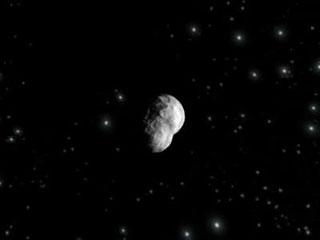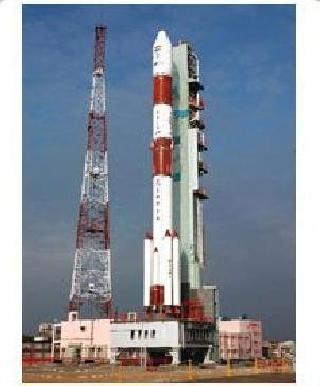
A file photo.
LONDON (PTI): An asteroid as powerful as 15 atomic bombs has whizzed past the Earth from a distance 10 times that of the moon.
Astronomers first spotted the cigar-shaped asteroid, identified as GP59, spinning through space a week ago and tracked its movement, the Daily Mail reported.
The 50-metre-long rock that could have destroyed a small country, however, went barely noticed as it passed earth at a distance of some 2,085,321 miles, the report said.
NASA scientist Don Yeomans said: "Usually, when we see an asteroid strobe on and off like that, it means that the body is elongated and we are viewing it broadside along its long axis first, and then on its narrow end as it rotates."
"GP59 is approximately 50m long, and we think its period of rotation is about seven-and-a-half minutes. This makes the object’s brightness change every four minutes or so."
Nick James from Chelmsford, Essex, recorded the newly discovered asteroid on Monday night showing the object hurtling across the screen and blinking on and off.
The asteroid, which was recorded with an 11-inch telescope, was around 2,085,321-miles away from Earth -- ten times the distance of the moon which is 238,857 miles away.
It was picked up by astronomers at the Observatorio Astronomico de Mallorca in Andalusia, Spain, who have since determined that it's heading towards us.
On Friday, the cosmic rock passed earth at a distance of more than two million miles. Space experts said there was no need to be concerned as direct hit on earth was highly unlikely.
"There is no possibility of the small space rock entering Earth's atmosphere during this pass or for the foreseeable future," Yeoman added.
He said that the orbit of the 'Asteroid 2011 GP59' could be accurately plotted.
Astronomers have so far recorded around 3,000 asteroids.
The most recent asteroid is five times bigger than one that exploded over Indonesia in October 2009.
 Previous Article
Previous Article Next Article
Next Article











The Indian Air Force, in its flight trials evaluation report submitted before the Defence Ministry l..
view articleAn insight into the Medium Multi-Role Combat Aircraft competition...
view articleSky enthusiasts can now spot the International Space Station (ISS) commanded by Indian-American astr..
view article